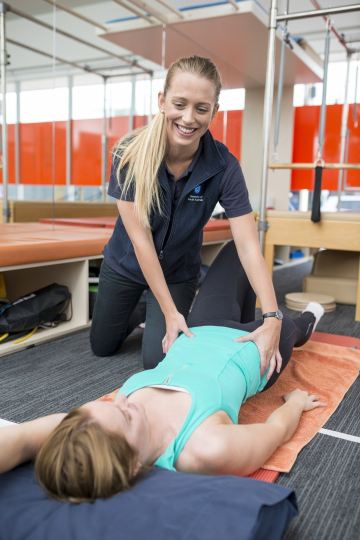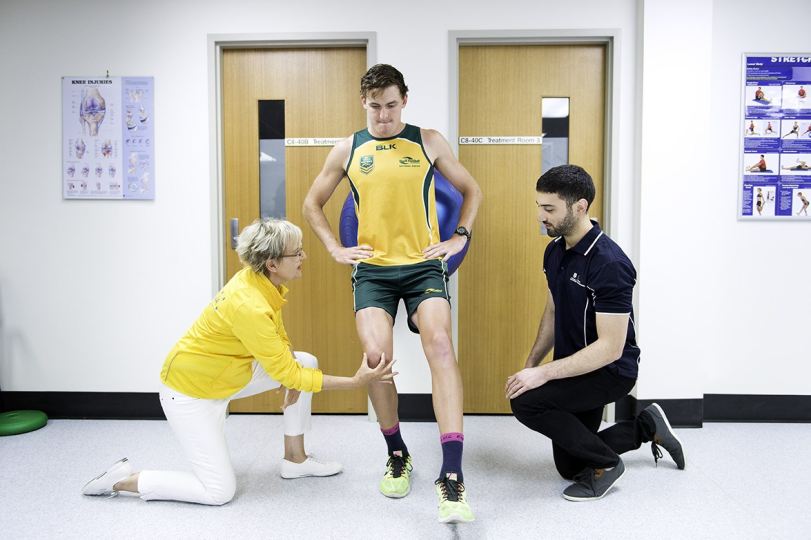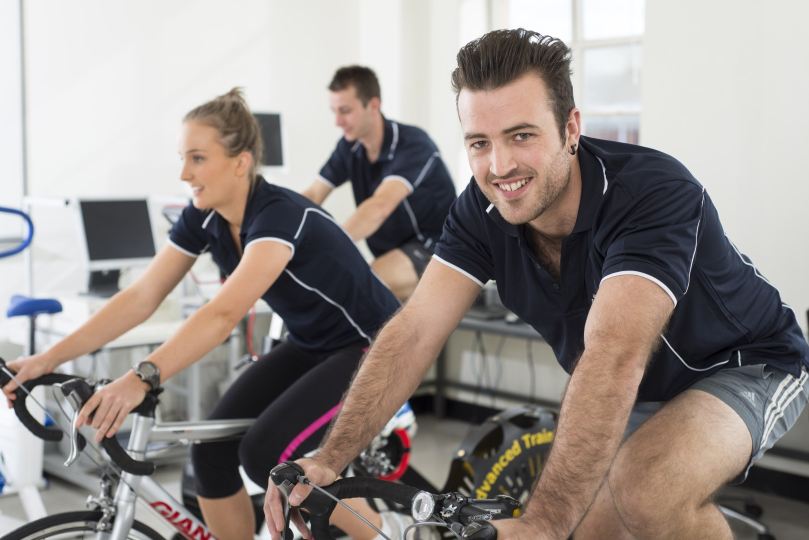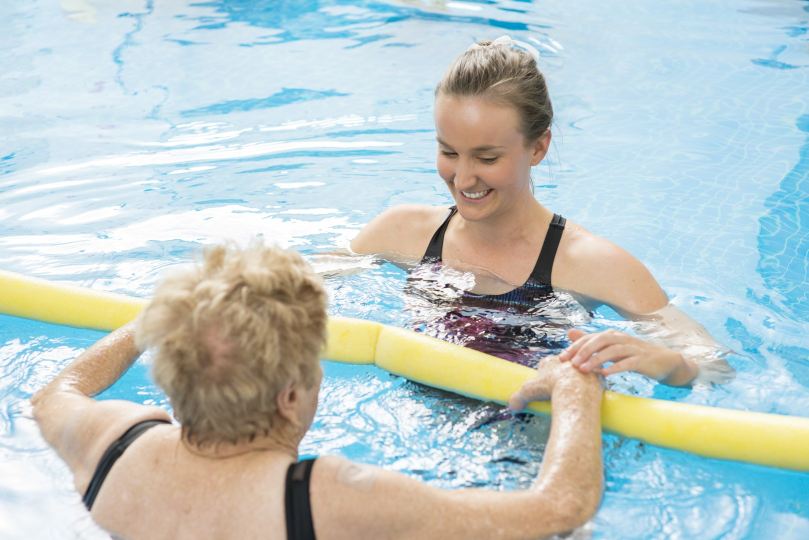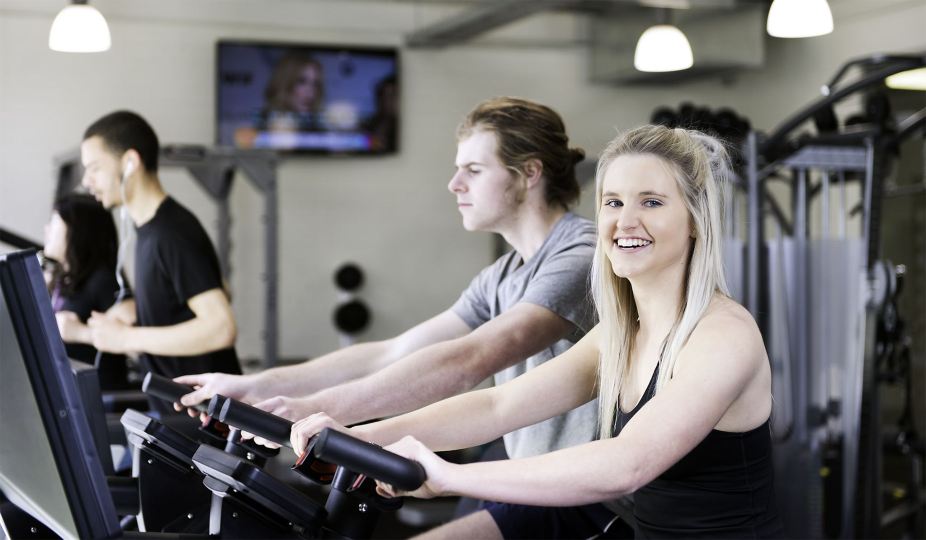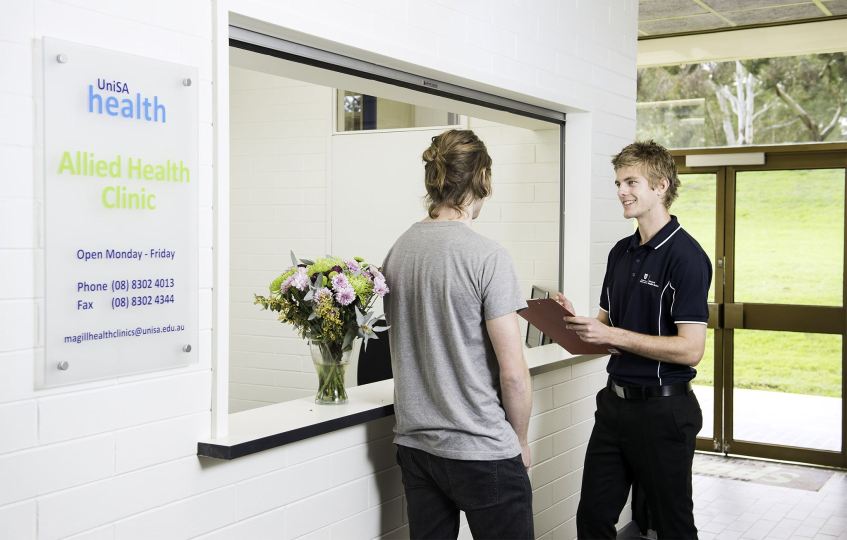Bachelor of Physiotherapy (Honours)
Degree Level Undergraduate
Year 2025
You're considered an Australian student if you are any of the following:
Degree Level Undergraduate
Year 2025
Prerequisites
None
Assumed Knowledge
SACE Stage 2 Physics
SACE Stage 2 Biology
More info
Admissions
Student Profile
Entry Scores
2025 Guaranteed Entry
Year 12 (Grades-based): NA
View Guaranteed Entry Info
2024 Cut-Offs
Year 12 (ATAR-based):
- Internal: 88.00
TAFE/RTO: Adv Dip
View full entry requirements
The admission criteria have been grouped to assist you to easily find the information most relevant to your circumstances. However, you may fit into more than one and the university will consider applicants against each of the relevant criteria.
Certain conditions apply. For more information refer to Appendix 4 of the University's Selection and Entry policy.
Applicants are required to meet one of the following criteria with a competitive result, and demonstrate that they fulfil any prerequisite requirements and essential requirements for admission:
Recent secondary education
Meet any prerequisite requirements with a minimum grade of C- or equivalent
AND
Applicants who have not achieved the Selection Rank required for automatic selection may be selected for any remaining places based on the grades of their year 12 subjects.
OR
Higher education study
OR
Vocational Education and Training (VET)
OR
Work and life experience
Become an expert in the structure and function of the human body, and help enable people of all ages to lead healthy lives.
Graduate ready to join one of Australia’s most in-demand allied health professions by studying South Australia’s first fully accredited physiotherapy degree.
Complete 45 weeks of practical experience in UniSA’s student-led physiotherapy clinics and industry-based clinical placements in areas like acute care, rehabilitation, paediatrics, aged care and disability, musculoskeletal and sports physiotherapy.
Graduate competent and confident to work across all areas of physiotherapy's scope with a respected honours degree, with opportunity to specialise in research or professional practice.
Study a contemporary and culturally diverse curriculum informed by above world-class research in physiotherapy.1
Learn from award-winning teaching staff, including practising health professionals and expert researchers at the forefront of their fields.
Benefit from our strong links with industry to kick-start your career.
UniSA is an unstoppable university for unstoppable people. As one of the World’s Top Young Universities,2 we’ll ensure you get the experience your future profession demands so it’ll feel like you’re studying one minute and in a career the next.
1Results in Clinical Sciences - 2018 Excellence in Research for Australia (ERA). 2Ranked #43, 2024 THE Young University Rankings.
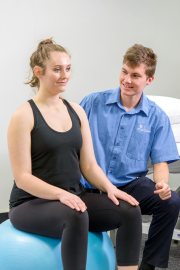
Kickstart your unstoppable career helping people to reach their full potential, and lead healthy, functional lives as an accredited physiotherapist. This four-year honours degree will develop your expertise in the prevention, assessment and management of health conditions across the full lifespan.
As a registered physiotherapist, you’ll be one of the most sought-after allied health professionals in Australia. Pursue careers in a range of areas such as working with children, rehabilitation, acute care, disability, brain and spinal cord injury, musculoskeletal, sports and aged care.
Further study opportunities to specialise your scope of practice or increase your research capacities include a Master of Research, doctoral studies or the Master of Advanced Clinical Physiotherapy (Sports or Musculoskeletal).
Applicants who are overseas trained physiotherapists should explore their eligibility for registration with the Australian Physiotherapy Council before they apply for this degree.
Students who undertake activities where interaction with patients/the public is required for their degree, such as field or clinical placements/visits and in University clinics and gyms, must demonstrate they meet mandatory pre-placement conditional requirements. These include criminal history clearance, a Working with Children Check and immunisation requirements.
Please visit the Clinical Placement Unit for information on key requirements, and to access the full student checklists.
Physiotherapy is a physically and cognitively demanding profession. Please refer to the degree’s Rules and Notes for further information about what you’ll need to successfully complete this degree.
All students enrolled in a program leading to professional registration must be registered with the relevant national board. The registration process is undertaken by the Australian Health Practitioner Regulation Agency (AHPRA) with the University providing notification to AHPRA following enrolment in the program.
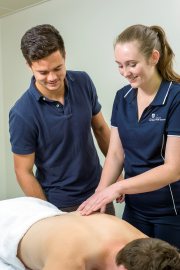
The Bachelor of Physiotherapy (Honours) will teach you to assess, treat and prevent health conditions across various areas of practice. This includes sport, musculoskeletal, cardiorespiratory and neurological disciplines.
You’ll start practical courses straight away and will learn foundational medical sciences in courses such as human anatomy and physiology. Social and psychological determinants of human health and function are covered in the inter-professional course Foundations of Health, where you’ll work with students studying podiatry, health sciences, occupational therapy and exercise physiology. You also begin your training in physiotherapy-specific skills from day one, starting with biomechanics and muscle assessment.
You’ll also study important aspects of pharmacology and movement analysis, challenge your understanding of the mechanisms and management of pain the biomedical model of health, and learn how to work collaboratively with patients to help them achieve their best outcomes. Experiential teaching is delivered through clinical placements that train you in the prevention and treatment of disease and disability.
You’ll graduate with qualifications to not only work as an autonomous practitioner concerned with prevention and management of disability and illness in the workplace or community, but also as a member of a multidisciplinary healthcare team. This holistic view of a patient’s health recovery is critical, especially across the different types of care needed for people of all ages.
You can gain an extra qualification and broaden your career prospects by completing a Diploma in Languages.
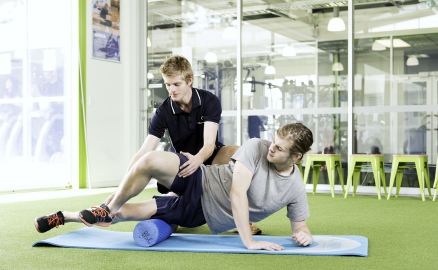
At UniSA, you’ll gain in-depth theoretical knowledge and practical skills required to excel as a physiotherapist with patient-centred care at the heart of your practice.
Graduating with an honours degree will set you apart from the crowd, ensuring you have a competitive edge and are well-placed for a career in industry, research or further postgraduate study.
At UniSA, you're encouraged to build your practical skills and industry relationships from day one of your degree. You’ll advance your knowledge and skills through supervised clinical placements across metro, rural and regional health settings, completing 45 weeks of practical experience across a variety of physiotherapy disciplines. Your learning is carefully designed to gradually reduce your need for support as you move toward graduation, to ensure you have the confidence and capacity to walk into a job as a new graduate physiotherapist.
You’ll benefit from the expertise of UniSA’s above world-class research in physiotherapy.1 We’ve been teaching in this field for more than 50 years and are proud of the rich knowledge base we’ve created. You’ll be taught by expert registered practicing physiotherapists and award-winning academics at the top of their fields throughout your studies.
You'll graduate with a degree that's accredited by the Australian Physiotherapy Council and satisfies the academic requirements for registration as a physiotherapist with the Physiotherapy Board of Australia. You will also be eligible for membership with the Australian Physiotherapy Association.
1Results in Clinical Sciences - 2018 Excellence in Research for Australia (ERA).
Find out where a career in physiotherapy could take you. Hear from UniSA graduate, Tristan Chai, about his role as Head Physiotherapist of professional men’s basketball team, Adelaide 36ers, as well as Owner of Good Physio.
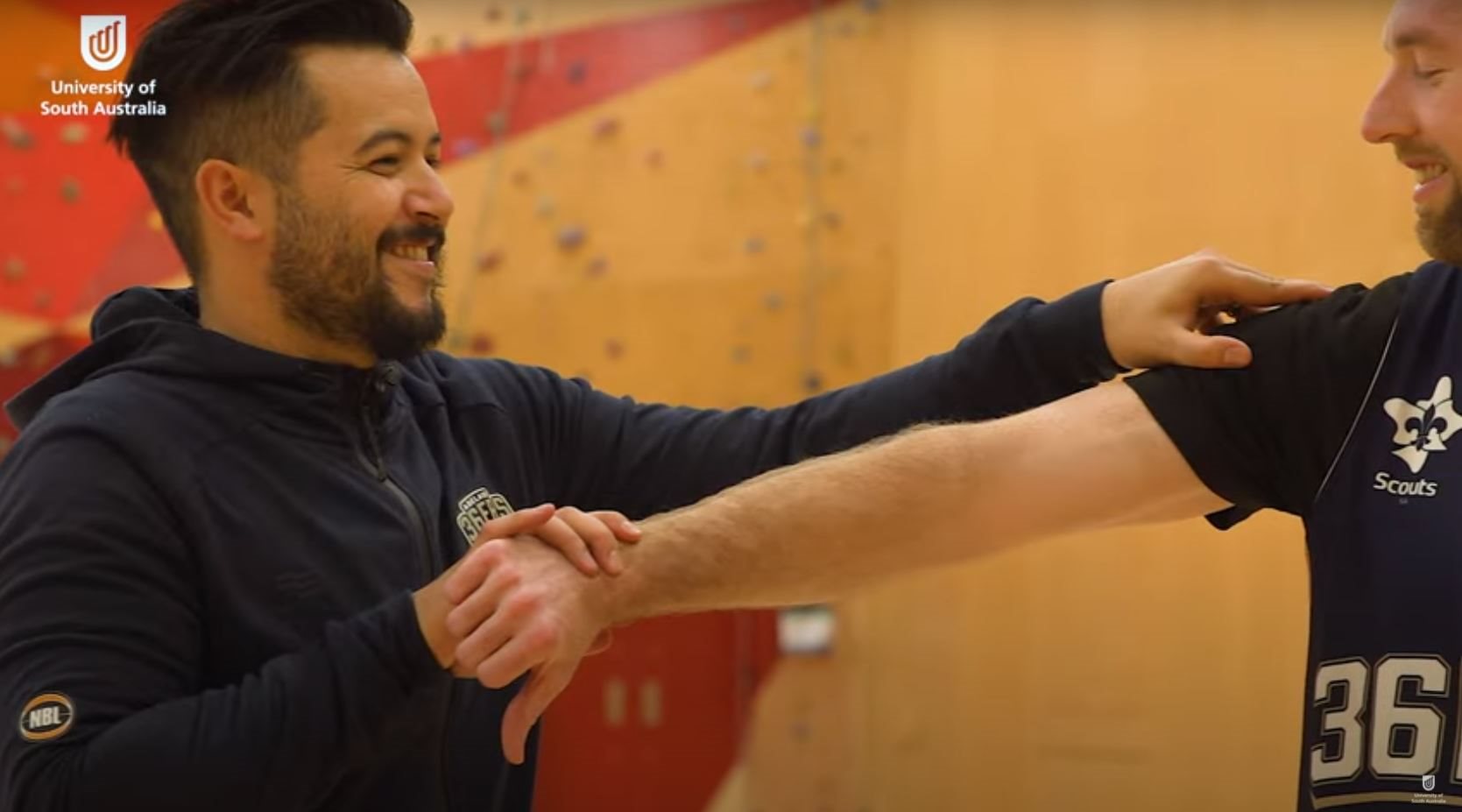
The demand for physiotherapists continues to grow with 9,400 new job openings projected to become available over the next five years.1
A successful physiotherapist is a biopsychological expert that understands the human body, but can also adeptly communicate, assess, manage and problem-solve a variety of issues for their clients.
Physiotherapists can work across management, administration, education, research, policy development, advisory and regulatory contexts. Industry settings can include:
Physiotherapists work across management, administration, education, research, policy development, advisory and regulatory contexts.
This qualification can also be used as a pathway to further learning, including a Master of Research, doctoral studies or the Master of Advanced Clinical Physiotherapy (Sports or Musculoskeletal).
1Australian Government National Skills Commission Employment Projections 2021.
The program is accredited by the Australian Physiotherapy Council and satisfies the academic requirements for registration as a physiotherapist with the Physiotherapy Board of Australia.
Successful completion of the program is accepted for membership of the Australian Physiotherapy Association
Have any questions? We're here to help! Contact Adelaide University's Future Student Enquiries Team.
Applying to study with us:
Please note that all pathways are competitive and no guaranteed due to limited places. A competitive Grade Point Average (GPA) and other entry criteria (including prerequisites) apply. For more information, visit unisa.edu.au/study or contact our Future Student Enquiries Team at unisa.edu.au/enquire or on (08) 8302 2376.
Australian
There are other pathways you can follow to study this degree, including:
International
There are other pathways you can follow to study this degree, including:
This degree is available for deferment. This option is made available by responding to your offer during the application process via the SATAC website. Applicants who receive an offer into a midyear degree are eligible to defer for six months.
Every year, over 2,500 UniSA students are supported in their studies through scholarships and grants worth millions of dollars. Check out the scholarships below. One of them may be perfect for you. Visit our scholarships page for more.
$5,000 scholarship for South Australian students with an ATAR of 99 who enrol to study a UniSA undergraduate degree.
Up to $10,000 per annum (full time) for South Australian students who obtain an ATAR of 99.95 or IB equivalent and enrol to study at UniSA.
Our campuses are home to fantastic facilities including modern lecture theatres, libraries, workshops and laboratories, as well as spaces that simulate real work environments. But you’ll also discover that your journey at UniSA is about social experiences, healthy living and getting involved. You’ll find student sports and fitness facilities, community clinics, tech zones and chill-out spaces. There are campus sport activities to keep you active, and if you are keen to explore the social side of university life, there are movies, cooking demonstrations, parties and loads more.
Adelaide also has a variety of accommodation options to suit different requirements and budgets. Options include dedicated student accommodation and private rentals. See our long-term accommodation pages, or explore our student accommodation by Scape on Bank Street in Adelaide’s lively cultural precinct, an ideal location for students. It is within easy reach of UniSA’s city and metropolitan campuses, Rundle Mall shopping, the Central Market, Chinatown, and the West End’s vibrant nightlife. It is also across the road from the Adelaide train station, and on bus and tram routes.
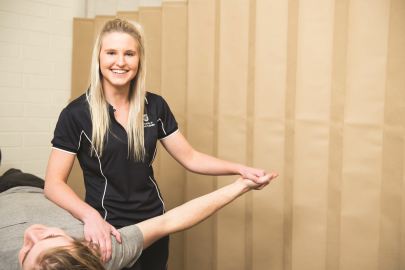
As a physiotherapy student you'll have access to purpose-built facilities, including:
You’ll also have access to a range of interesting on-campus spaces including collaborative teaching rooms and relaxed student lounges.
I have the privilege of directing a degree delivered by world-class researchers and educators, who support students to graduate with the knowledge and skills they need to work independently and meet the needs of our community. I strive to create innovative and safe learning environments that enable students to pursue excellence and fulfil their highest potential.

The way you apply for UniSA will depend on the undergraduate or postgraduate coursework degree you're interested in studying.
The majority of applications are made via the South Australian Tertiary Admissions Centre (SATAC). Check out more information on the SATAC website and follow the appropriate process for your degree of interest.
There are a small number of degrees that you need to apply for through direct application processes. The process you need to follow will be listed on the 'How to Apply' section of the degree homepage, but you'll also be taken to where you need to go if you hit the 'apply' button.
If you are interested in studying one of our 100% online degrees you'll need to apply directly to UniSA Online.
You can find more information about the application processes for UniSA on our How to Apply webpage.
If you're more interested in applying for a postgraduate degree by research, check out and follow the information in our step by step guide to applying.
Applications for all degrees will close ahead of study commencing, but the timelines may vary for undergraduate and postgraduate degrees.
The deadline to apply to study a degree at UniSA for semester one (commencing late February) and be guaranteed equal consideration is generally in very late November or early December. While you may be able to apply after this date, you are not guaranteed to be considered equally with other applicants and your application may not be assessed in time for the main round of offers. More competitive degrees may not make any offers after the main offer round. Find more information on the Key Dates section of the SATAC website, but you can also call the Future Student Enquiries team for more information on 08 8302 376.
Many postgraduate by coursework degrees do not have set closing dates. The exceptions are highly competitive degrees, so it is best to check – either on the degree homepage on the SATAC website or by checking with our Future Student Enquiries team.
As most postgraduate applications are assessed as they are submitted and offers are continuous, there are no set closing dates for applications. Degrees can be filled and closed with little notice so it is best to apply as soon as possible to avoid missing out on a place. For more information, please contact our Future Student Enquires team on (08) 8302 2376 or submit an enquiry.
You may be eligible for credit or advanced standing for your chosen UniSA degree based on your previous studies, if they are in a related area and completed within a certain timeframe. Receiving credit or RPL will reduce the number of courses you undertake within the degree, and may also reduce the overall duration of your degree. You can read more about our pre-existing credit agreements through our online Credit Assessor. If you have related industry experience, you may also be eligible to receive recognised prior learning (RPL) for this experience. Credit and RPL is assessed by the Program Director once you've received an offer, and you apply through UniSA's current student experts, Campus Central.
Future Student Enquiries welcomes the opportunity to meet with you to discuss your study options at UniSA. We can discuss degree information, entry requirements and pathways, applications, general career outcomes and student life, so you have the information to make the best study decision for your future. Head to our Book an Appointment webpage to find a date and time to speak with us, and take your next steps on journey to university study.
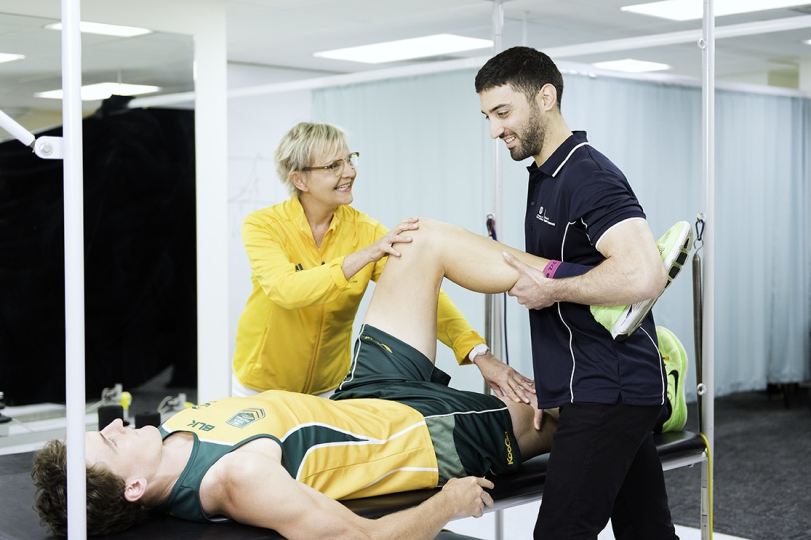

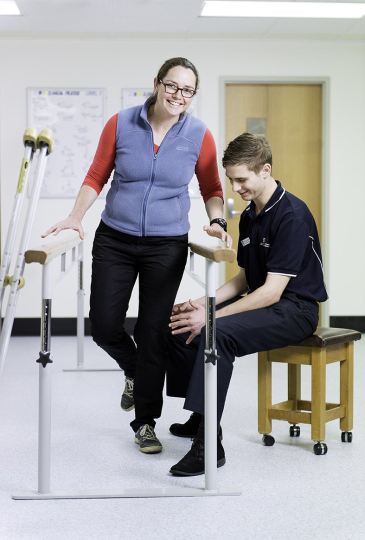
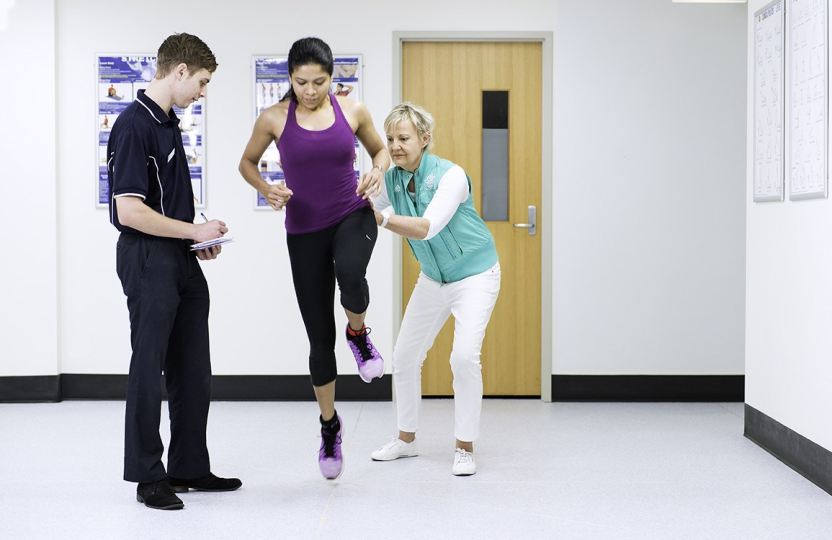
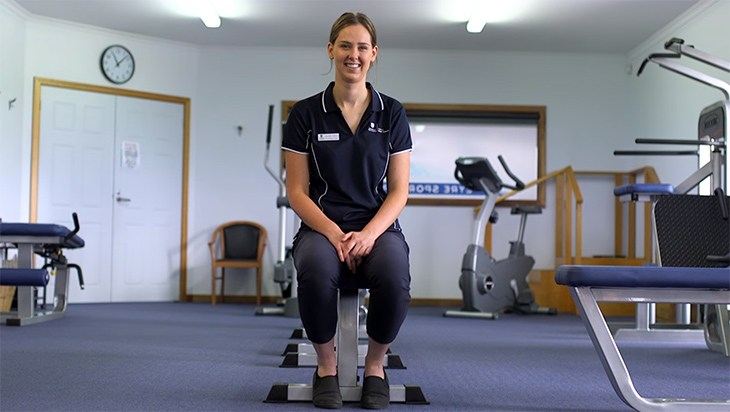
Bachelor of Physiotherapy student Danielle shares her experience of her rural placement at Sports Physiotherapy in Port Lincoln, supported by UniSA’s Department of Rural Health.
